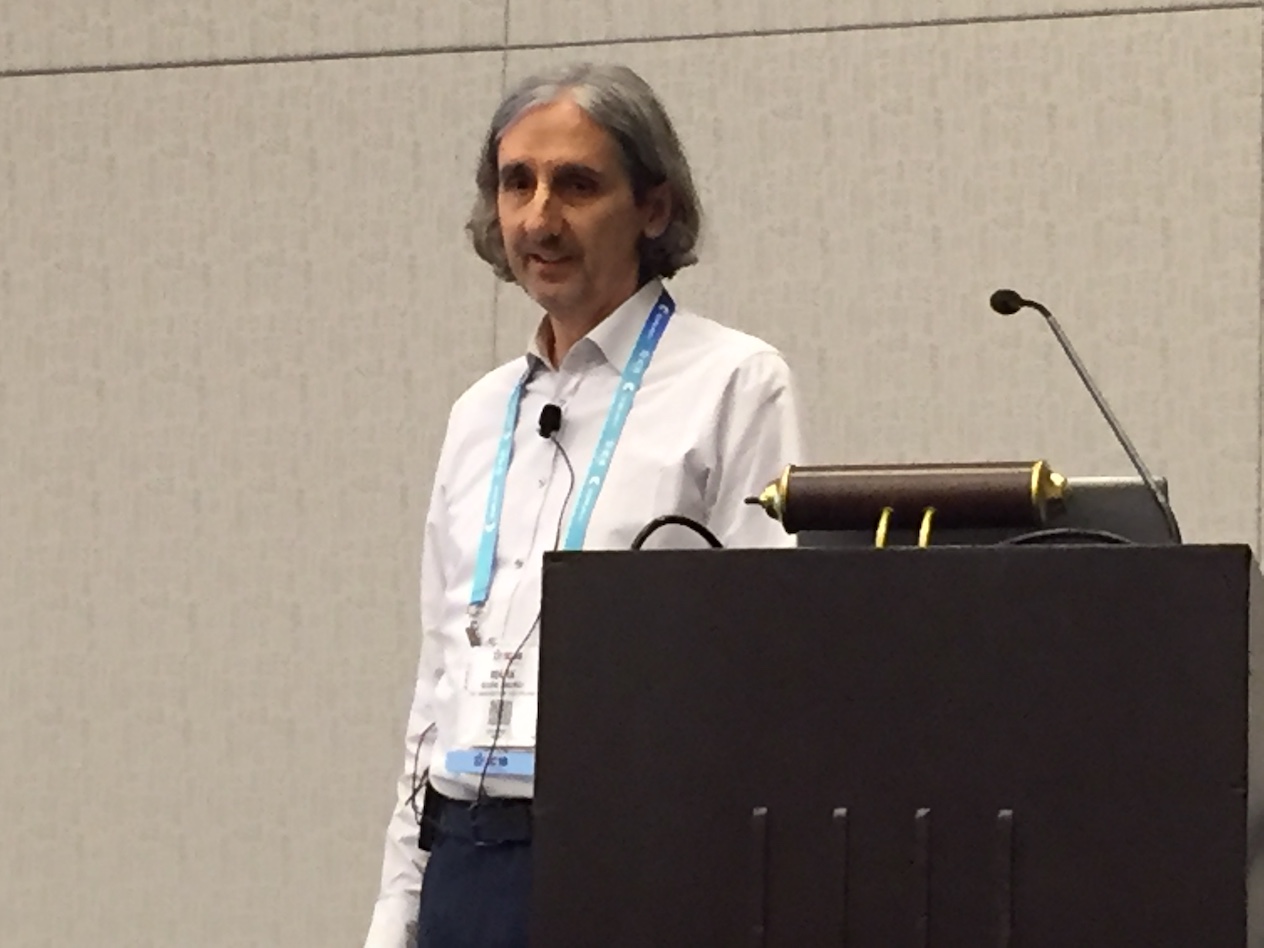
By Mark Endrei
I had the opportunity to attend SC18, the ACM/IEEE International Conference for High Performance Computing, Networking, Storage, and Analysis, in Dallas, Texas, USA, from 12–16 November.
It was a massive conference with more than 13,000 attendees and 360 exhibitors this year.
I also presented a RCC research paper on HPC energy efficiency, a collaboration with Cray Inc. and Lawrence Livermore National Laboratory, as part of the SC18 papers program. Like most of the program, my talk had well over 200 attendees and engaging questions at question time.
The conference had many highlights for me, including keynote and invited talks, talks by the Gordon Bell Prize finalists (nominated for outstanding achievement in HPC), as well as the evening receptions and vendor events.
The Students@SC keynote by Prof. Thomas Lange, titled “The Computing Hidden in Everyday Things”, was very interesting. I had not realised how important HPC modelling is for high-speed production lines, from manufacture of toilet paper to snack foods.
A number of speakers, including Prof. Lange, also saw similarities between the machine learning hype of the 1980s and deep learning today. Was computer power a limitation the first time around?
Invited talks on exascale computing projects from Dr Doug Kothe of Oak Ridge National Laboratory and Prof. Depei Qian of Beihang University and Sun Yat-sen University were also very interesting. With Chinese supercomputers leading the top500.org list for several years, USA now seems focused on consolidating and extending the lead it has achieved this year.
Dr Kothe expects new accelerators, such as quantum accelerators, will be important as the limits of Dennard scaling and Moore’s law are reached. Microsoft Research’s Dr Matthias Troyer's insightful talk also provided a brilliant overview of benefits and limitations of quantum computing accelerators.
A common theme among the Gordon Bell finalists was computing at the largest scales. Five of the six finalists had evaluated their research on Summit, the world’s fastest supercomputer at the Oak Ridge National Laboratory, USA. Another finalist used the 40,000 node Sunway TaihuLight at the National Supercomputing Centre in Wuxi, China. Machine learning applications were a focus, along with extreme scaling for physics, genomic, and graph problems.
It was great to see the finalists and other high achievers recognised at the SC awards presentation. RCC’s own Prof. David Abramson chaired the Test of Time Award committee and presented the award to Dr Mike Warren and Dr John Salmon for their parallel hashed oct-tree work.
As a newcomer to SC, the exciting work and level of international collaboration on display is inspirational. I hope to get the opportunity to attend again!



